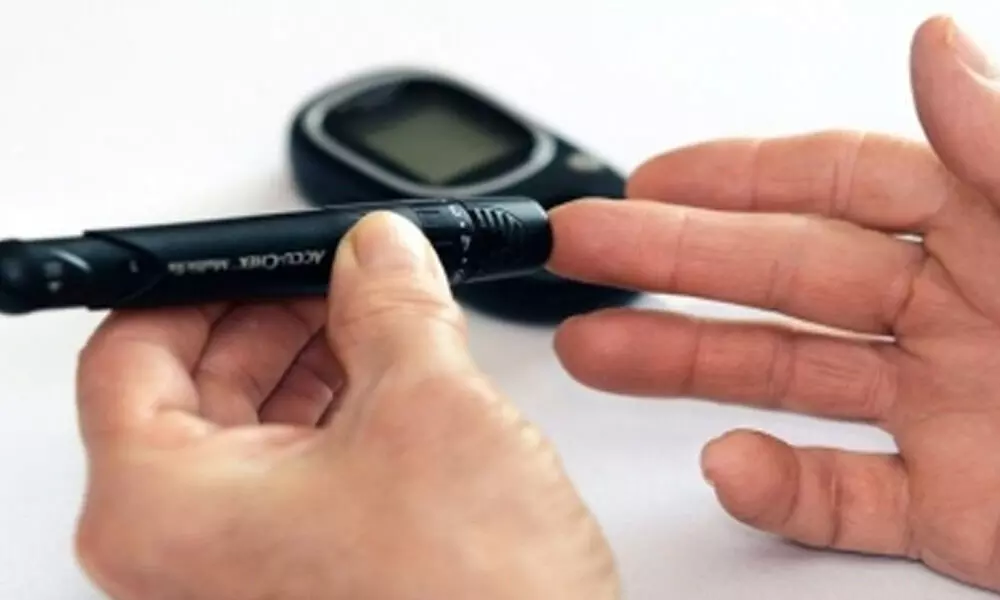Diabetes, a silent disease with life-threatening complications

Diabetes, a silent disease with life-threatening complications
In recent decades, type 2 diabetes (T2DM) has emerged as one of the leading causes of chronic illnesses, disability, and death.
New Delhi: In recent decades, type 2 diabetes (T2DM) has emerged as one of the leading causes of chronic illnesses, disability, and death. Although the harmful effects of T2DM are known to many, it is still seen as merely a disease of high blood glucose which can be managed by medications alone. What is not emphasised enough is the fact that diabetes has a progressive nature, and it brings forth fatal outcomes if not treated the right way.
It has long been ingrained in our minds that T2DM is a lifelong and incurable disease. We are made to believe that once diagnosed, there is no turning back and popping pills to treat diabetes is the norm. Medications do help in managing the symptoms and may even delay the progression of the disease. But they do not offer redemption from T2DM and can even worsen disease outcomes. More importantly, a question to ask is whether the pills we rely on are strong enough to deal with a disease that is capable of harming every system and function in the body.
What are the unseen deadly complications?
Diabetes is capable of causing gradual, invisible, and immense damage to every part of our bodies. Complications arising from T2DM depend on how glucose affects the blood vessels and various organs in our body. A buildup of high levels of glucose in the blood can cause inflammation, damage the blood vessel lining, stiffen and narrow arteries, and even contribute to plaque formation. These events often manifest as small blood vessels (microvascular), large blood vessels (macrovascular), and metabolic complications.
Microvascular: The microvascular damage affects the eyes (retinopathy), kidney (nephropathy), and nerves (neuropathy) and eventually leads to vision loss, kidney failure, and loss of sensation, pain, and weakness, especially in the hands and feet as a result of nerve damage. Diabetics are also at high risk for infections, such as skin and gum infections. Infections on the feet can, in particular, go unnoticed as an effect of loss of sensation (neuropathy) and spread uncontrollably to cause limb amputations.
Macrovascular: High glucose levels also damage the large blood vessels supplying oxygen to our heart and brain and result in coronary heart disease, stroke, and other cardiovascular and cerebrovascular diseases.
Metabolic: Another serious effect of diabetes is that it often coexists with other comorbid conditions such as hypertension, dyslipidemia, nonalcoholic fatty liver disease, and polycystic ovarian disease. Insulin resistance, which drives the onset of T2DM, can also promote the development of these metabolic disorders, and these conditions can, in turn, exacerbate and drive the progression of diabetes complications.
The complications of diabetes are severe and inevitable if not treated properly. And that is why it is crucial to take an approach that not just manages but completely reverses type 2 diabetes. The most effective strategy to prevent diabetes complications and, even better, beat diabetes is to address the underlying root cause of the disease, which is insulin resistance.
How do we fix this? Can we reverse the complications?
Insulin resistance is a metabolic condition that occurs as a result of unhealthy and damaging lifestyle choices that we have made over many years. Take, for instance, our food choices. Our modern diets consist of foods that are high in refined and processed carbohydrates and devoid of essential nutrients. When ingested, carbohydrates flood our blood vessels with glucose, which in turn triggers the release of insulin from the pancreas. Over time, if this practise continues, we end up with a high level of glucose in our bloodstream. And eventually, cells require a higher amount of insulin than what was needed before to take up glucose for energy. Frequent consumption of carbohydrates and sugar-rich foods results in high insulin levels and insulin resistance, which can drive the onset of not just diabetes but also other metabolic conditions.
Bottom line
Diabetes is to be taken seriously from the start. The goal is to take diligent measures to beat the disease completely before it advances to a more serious stage. If you are living with type 2 diabetes, give some thought to the course of action you are taking now to treat yourself. Identify if the approach you follow now can reverse your diabetes or whether it is just a temporary means to keep your symptoms under control. Ideally, you would want to take the first path that leads towards a diabetes-free life. As mentioned before, diabetes is reversible and achievable when you address the problem of high insulin levels and insulin resistance.
Pay close attention to the food choices you make. Reduce your intake of foods that spike your insulin levels. These include all carbohydrates to a great degree. Keep protein intake at a moderate level as it can have some effect on your insulin levels. Increase consumption of healthy fats without fear, as fats have zero effect on insulin levels. Increase your intake of foods high in anti-inflammatory and gut-healthy properties to support your diabetes reversal journey.
In addition to this, incorporate intermittent fasting, which plays a key role in improving insulin sensitivity and stabilising blood glucose levels, make efforts to lower your stress levels, adopt a healthy sleep pattern, and stay active through regular exercise and daily walks.
Diabetes is a disease that needs your full attention and consistent lifestyle modifications can set you on a path free from diabetes and help you achieve a good quality of life.










